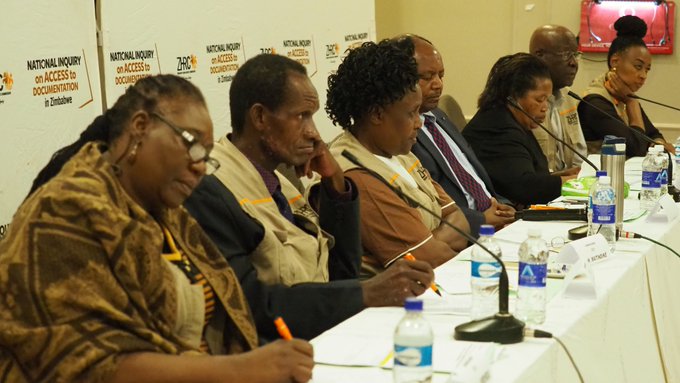By Joyce Mukucha
In line with Section 17 (b) of the Constitution, the Zimbabwe Human Rights Commission(ZHRC) has called upon the government to honour its obligations towards empowerment of women so as to achieve gender balance in all institutions and agencies of government.
ZHRC said this is aimed to increase women’s leadership and tap on women’s strengths and unique qualities in implementing recovery strategies and achieve an equal future in the COVID–19 world.
Commemorating International Women’s Day yesterday, ZHRC urged the government to work tirelessly in crafting Covid-19 related policies aimed at advocating and lobbying for women’s leadership and equal representation gender lens and account for women’s unique needs and responsibilities.
The Commission noted with concern how the COVID-19 pandemic exposes the structural inequalities that continue to marginalise women, pointing to the need for gender-sensitive recovery strategies since the pandemic could have far reaching implications including the risk of exacerbating gender inequalities and reversing the global gains in gender equality.
“The Zimbabwe Human Rights Commission joins the nation and the rest of the international community in celebrating the 2021 International Women’s Day on the backdrop of the devastating and widespread socio-economic effects of the COVID-19 pandemic. These celebrations mark the recognition of the valuable contributions of women leaders the world over in shaping a more equitable future and recovery from COVID19.
“The Commission urges the government to come up with COVID–19 evidence-based gender impact assessments before implementing recovery policies in order to avoid entrenching or exacerbating the inequalities and gender gaps that have emerged during the pandemic,” the Commission said.
Over the years, ZHRC highlighted, women leaders have proved that they are capable leaders in all spheres of life.
“This year’s International Women’s Day theme reminds us of the important contributions of those women leaders towards socio-economic and political development at all levels, at the family, community as well as national, regional and international levels. We wish women the world over, all the best on this day and any other day in their lives.”
The Commission stressed that full participation and leadership in all spheres of life results in progress for everyone, yet women were still underrepresented in leadership roles both in the public and private sectors.
“In addition, women have not been able to assume significant leadership roles in task teams against COVID-19 as much as their male counterparts. This is against a background in which women constitute the majority of the health sector workforce globally, but occupying non-decision-making positions.
“Section 56(3)of the Constitution of Zimbabwe provides for the right to equal treatment for men and women including the right to equal opportunities in political, economic, cultural and social spheres as well as equality and non-discrimination on any basis including on the basis of sex, gender and marital status,” ZHRC underscored.
The Commission also commended women’s positive contributions during a time when the world is grappling with the devastating effects of the COVID-19 pandemic whereas leaders in different capacities in the health sector and indeed, women’s generality was seen shouldering the burdens brought about by the global pandemic.
“The pandemic has seen women at the forefront of the battle in different roles such as frontline workers in the health sector, as scientists, doctors, nurses and caregivers leading efforts to save precious lives. Regrettably many have lost their lives in their efforts to care for others. Amidst the COVID-19 pandemic, women continue to face high risks of economic insecurity, being disproportionally represented in the informal sector, which is presumably the worst affected in Zimbabwe.”
The Commission also pointed out that women also face higher risks of exposure to COVID-19 infection due to their caregiving roles accompanied by economic stress on families due to the pandemic puts women and children, in particular, girls at greater risk of sexual and gender-based violence and emphasised the need to address this.






